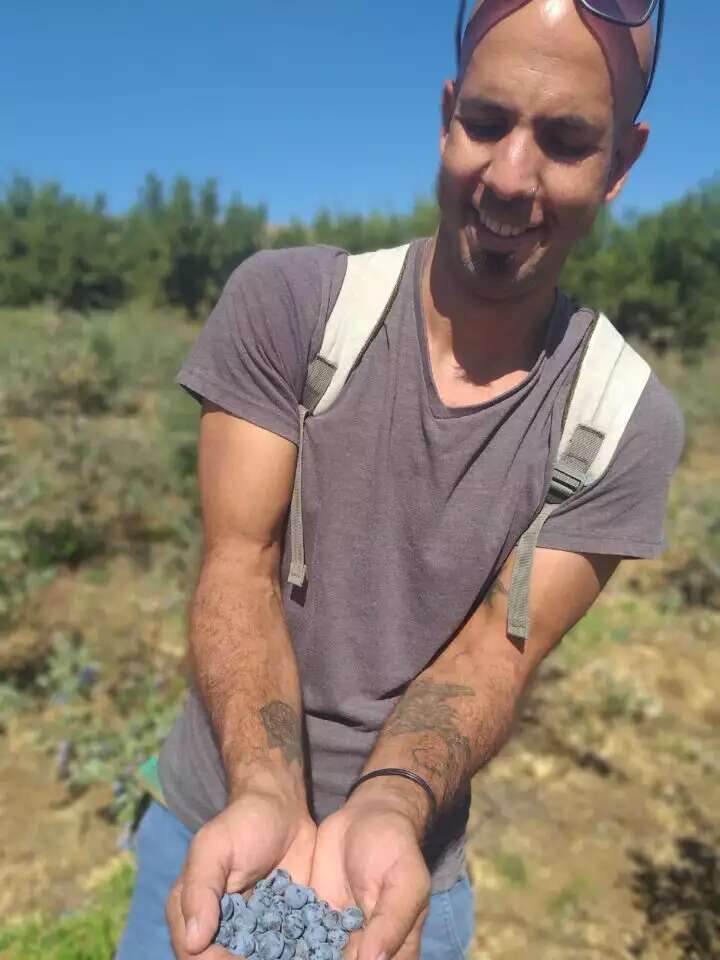In the aftermath of the October 7 Hamas attack, the Tahan family's world was shattered when Rani Tahan fell in the ensuing conflict. Now, his widow Raz and their four young children are forging a new path in Kibbutz HaOgen, near Netanya, after evacuating Sde Nehemia in the Upper Galilee. While balancing grief, they are determined to embrace life and community in their new home.
Home // A repurposed kindergarten in Kibbutz HaOgen now serves as the Tahan family's living quarters. With four bedrooms, two kitchens, a living room, and a bathroom, the space is filled with children's equipment, like sandboxes and cribs. "This was meant to be our temporary home until Rani returned from reserve duty," Raz reflects. "But dreams and plans are one thing, and reality is another."
Voluntary Evacuation // "We came to the kibbutz after deciding to leave Sde Nehemia, having moved between my siblings," Raz explains. "The kibbutz took in families who self-evacuated, not those officially evacuated, so we received no state assistance. Kibbutz HaOgen stepped up to help us, but among everything else, we had to contend with this too. There's a huge financial struggle because there's no government aid for those who evacuated voluntarily."

Mornings // "Everything starts too early," Raz says, waking at 5:30 AM. "On good mornings, we spend time in the living room playing board games, and I get to relax on the couch with the children. Less successful mornings involve flying pillows and hands – if everyone's awake so early, why not annoy each other? Especially the boys."
Around 6 AM, breakfast begins with bowls of cornflakes and milk. "My children were used to their father baking fresh bagels every morning," Raz recalls. "So after cereal, the kitchen reopens. I try to recreate that, taking orders from each child." The rest of the meal involves a division of labor: one child prepares egg toppings – mushrooms, cheese, feta, cilantro, and green onion; another cuts vegetables or makes salad; one sets the table; another fries eggs; and one prepares Raz's coffee. "These moments fill the house with the smells of a normal home. Everyone sits to eat, and this time around the table is sacred – open conversation and listening."
Work // Until two months ago, Raz worked at "Peimot," an organization supporting new parents from the birth of their first child until age three. As a mentor, she says, "I usually worked with first-time parents, building a kind of 'parental vision.' It's meaningful work with a sense of mission, but now I don't have the emotional capacity to guide others through their journeys. Today, I'm fully devoted to the needs of our children."
Background // Raz, the third of four siblings from Rehovot, saw two of her siblings become religious. After high school, she served in the Givati Brigade as an operations sergeant in the Maglan unit. Rani grew up in Rosh Pina, also one of four children. "He was always curious about the world," Raz remembers. "An autodidact who learned extensively, especially about agriculture. As a child, he was eager to discover everything."
Military Service // Rani served in the Givati Brigade. "For the first time, he felt loved, appreciated, and worthy," Raz says. "He truly found his purpose. During his service, he witnessed an incident where his deputy company commander and company commander were killed. As the medic, he carried the burden of not saving them, even though it was impossible. This led to his post-traumatic stress disorder."
Their Meeting // They met at Givat Haviva after their regular service, both there for grade improvement courses. "We first met in a math class," Raz recalls. "His charm, the sparkle in his eyes, the look that said 'everything will be okay' without words – these things moved me. He was the only one who could reassure me with just a look, and I believed him completely. That's why I never thought he could die. Rani wasn't someone who dies; he was like a street cat, always managing, unbeatable. He had broad shoulders and could break unbearable situations with his humor."
Life Upended // The Tahans' life is divided into before and after October 7. "Until the war, we were a typical family – joys, fights, dreams, plans," Raz says. "On October 7 at noon, our new life began. I couldn't grasp how everything changed so fast. Rani told me he was packing a bag to 'save our home, all our homes,' despite his reserve duty exemption. He said, 'I'm going south,' asked for my blessing, and left. For two weeks, they cleared the area of terrorists and evacuated many bodies."
Displacement // Having lived in northern Israel for nine years, Raz fled south with the children when war broke out. "I thought Rani would return in days and we'd go back to Sde Nehemia. For six weeks, he fought while I moved between my siblings' homes with the kids."
New Beginnings // Two days before Rani's death, Kibbutz HaOgen offered Raz a vacant kindergarten for housing. "We told Rani, and he was excited we were moving to a place called 'The Anchor.' We all needed one. We planned to wait there for him to join us after his service."
The Knock // Raz planned to move on November 19. "On the 18th, officers came to tell us Rani had been killed in Gaza. Two days after the shiva, understanding my commitment to Rani and the children, I chose life and we moved to the kibbutz. That's when our new life truly began."
Memories // "The children started school, made new friends. We buried Rani a seven-minute drive away. Whenever we miss him or want to share secrets, we visit," Raz says. "People here no longer see us as pitiful. Our children are just like the others, and I want to keep them in this familiar place."
Looking Ahead // "I'm putting everything on the line now," Raz admits. "It's frightening, but our children's lives, stability, and security matter most. We'll soon have to leave this temporary home, so I started a crowdfunding campaign – 'Our Heart Needs an Anchor' – to buy a house here. I'm essentially raising money to choose life, to stay here, because we can't handle another upheaval."




